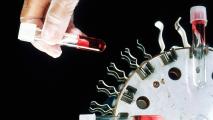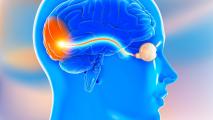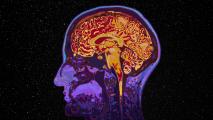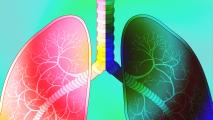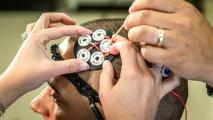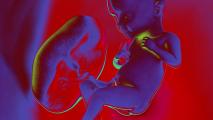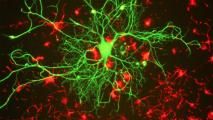
Biotech
Human history has been all but defined by death and disease, plague and pandemic. Advancements in 20th century medicine changed all of that. Now advancements in 21st century medicine promise to go even further. Could we bring about an end to disease? Reverse aging? Give hearing to the deaf and sight to the blind? The answer may be yes. And soon.
More
Flexible brain implant tested in people for the first time
Startup Precision Neuroscience has tested its flexible, ultra-thin brain implants in people for the first time.
90% of patients respond to new blood cancer treatment in trial
Israeli researchers have developed a new form of CAR-T therapy effective against multiple myeloma, a plasma cell cancer.
Brain scans hint that lonely individuals process the world differently
A study finds that the brains of people who score higher in loneliness react in unique ways when viewing video content.
Visiting space likely won’t cause permanent brain damage, says NASA study
Spending months in space has a major impact on astronauts’ brains, but three years back on Earth appears to reverse the change.
Made-to-fade tattoo ink keeps cancer therapy from leaving a mark
Henry Ford Health researchers are using temporary tattoo ink to help radiation therapy patients for whom permanent tattoos may not be an option.
Scientists are growing animals in artificial wombs. Humans might be next.
Artificial wombs promise to give people a way to have biological children without putting their own health at risk.
The neurons that make us feel hangry
Researchers gave pinpointed a cluster of cells called AgRP neurons near the underside of the brain that may create “hangry” feelings.
New drug for fatty liver disease cuts fat by 65%
A new NASH treatment, efruxifermin, significantly reduced liver fat when combined with a GLP-1 drug in a small trial.
Lung cancer drug slashes patients’ risk of death by 51%
Osimertinib, an FDA-approved lung cancer drug, slashes the risk of death for certain patients by 51%, according to new trial results.
Rhythmic brain stimulation could boost cognitive function
An analysis of over 100 studies helps resolve conflicting evidence on the benefits of transcranial alternating current stimulation, or tACS.
The placenta may play a role in the genetic risk of schizophrenia
Researchers at Johns Hopkins have found that genes associated with schizophrenia risk may impact the placenta, not just the brain.
Ketamine is as effective as ECT for depression, study shows
A trial of patients with treatment-resistant depression found ketamine to be at least as effective as electroconvulsive therapy.
Sound waves can trigger torpor-like state in mice and rats
Ultrasound stimulation triggers a torpor-like state in animals, suggesting a noninvasive way to put people into the state.
Man receives donor lung through tiny 3-inch incision
The first fully robotic lung transplant was completed in Spain by surgeons using a robot and a brand-new access point.
Gain-of-function research is more than just tweaking risky viruses
Gain-of-function experiments in the lab can help researchers get ahead of viruses naturally gaining the ability to infect people in the wild.
The radical drop in maternal mortality was a public health miracle
In 1758 in Sweden, 1205 mothers died for every 100,000 live births, which was likely representative of the global maternal mortality rate.
Nope, coffee won’t give you extra energy
You might feel like coffee gives you the energy to get through the day – but chances are, you’re not getting as much as you think.
Zapping the brain during sleep helps memories form
Brain stimulation during sleep appears to help with memory consolidation, suggesting a new way to treat people with memory disorders.
Adult-made neurons mature longer, have unique functions
Neuroscientists don’t know the degree to which adult brains generate new neurons, but adult-made neurons appear to have more “mature” functions.
Get inspired with the most innovative stories shaping the world around us.














